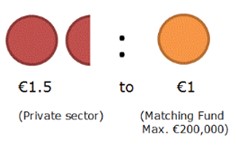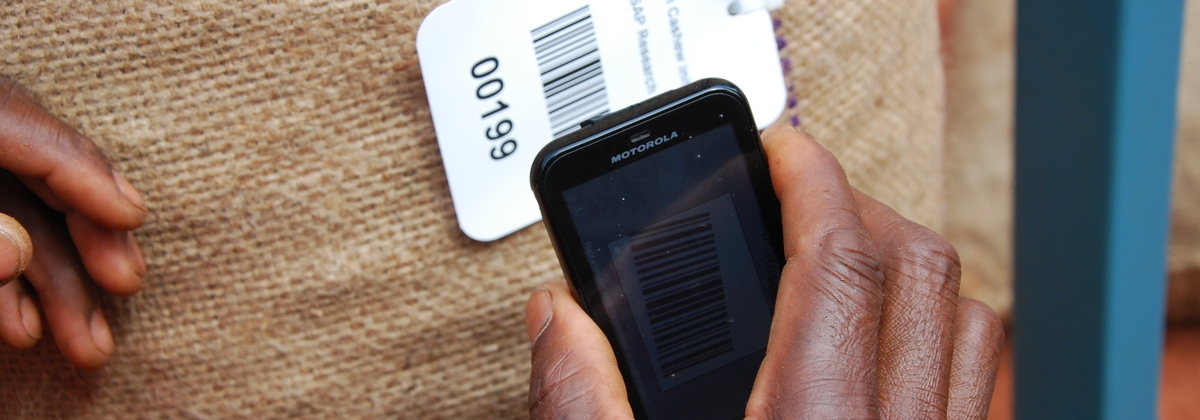
Inclusive Business
“Stable trading relationships between producers, processors and buyers are very important for the growth of the cashew sector in Africa. Processors on the one hand need good quality products and consistent supply to ensure the usage of their factory‘s capacity. On the other hand they need to remain flexible in order to respond to prices and markets. Farmers require training and storage facilities to improve the quality of their raw product and to be able to receive fair and reliable prices.” ComCashew has supported existing and new Farmer Based Organizations (FBO) in building organizational and managerial capacities through trainings and coaching of execute farmers directly to processors. Through joint activities with FairMatch Support about 30,000 of these farmers are producing for high-end and specialty markets like organic and fair trade. ComCashew uses the lessons from supply chain linkages in specialty markets for linkages in conventional markets also, where incentives for farmer-processor linkages, bulk selling and contracting arrangements play an equally important role. ComCashew monitoring shows that organized farmers are selling greater quantities, eliminating middlemen, produce better quality nuts and achieve 10% higher prices than individual farmers. ComCashew especially values the importance of the stable and flourishing business relationships that have been established through its unique Cashew Matching Fund.
Representative of a large farmer cooperative in Benin
The Cashew Matching Fund brings together private and public sector partners and farmers to build closer supply chain linkages. As a result, ComCashew's activities are directly implemented by its partners. Since the inception of the Cashew Matching Fund in 2011, a total of 45 Matching Fund projects been implemented so far. These 45 projects represent a total investment of 15 million Euros. The 6th call of the Matching Fund which was launched in 2017 identified 13 priority projects for funding. Out of these 13 projects, there are 8 grant agreements with the public sector and 5 partnerships with the private sector. The objectives of the 6th call of the Matching Fund are on: The current call is financed with funding from the German Federal Ministry for Economic Cooperation and Development (BMZ) however, there are plans to upscale with funding from Swiss State Secretariat for Economic Affairs (SECO) with a focus on processing and business linkages in Ghana. Funding Ratio and Limit? Who can apply? Applicants need to be registered members of the African Cashew Alliance (ACA). GIZ specific requirements: The following costs are eligible for funding and can be accounted for by private partners as in-kind or cash contribution: The following cost are not eligible for funding: Transport of goods, insurance and bank transaction cost. You wish to learn more about the ComCashew Matching Fund, you would like to have detailed information about applying for funds and to receive the full Concept Application Form? Please submit your completely filled in Application electronically with all attachments to Cashewfund@giz.de SAP in close cooperation with the ComCashew has developed innovative mobile applications for the digital inclusion of smallholder producers. At the level of producer groups transactions like farmer registration, pre-payment, input supply, grading, purchase, logistics and payments are recorded and synchronized on the field in real time via smartphone. Further applications support data analysis and facilitate operational field support, and also ensure traceability. Through this system producers, producer groups, processors and buyers are enabled to run their field activities in a more effective and efficient way. Essentially, producers get access to profitable markets that promote an increase in their income. Established players like local processors, buyers and multinationals profit from enhanced transparency and reliability when doing business with smallholder producers. Such enterprises also include existing SAP customers. They are enabled to plan and forecast accurately. Ultimately already existing economic activities with farmer groups are sustained. This not only boosts local economic activity but could in a very direct way also improve the socio-economic situation for a vast number of under-serviced rural inhabitants. SAP is currently commercializing the solution in order to ensure a worldwide availability beyond the initial pilot projects. In 2013, ComCashew introduced GPS mapping of cashew farms in the five project countries (with the exception of Sierra Leone). GPS mapping generates accurate data on farm sizes and information on cashew production to improve the planning and management of farms. The generated data is critical in establishing a baseline from which to assess yield variations and income potential of farmers. Also, GPS mapping allows producers to establish ideal collection points for the gathering of their cashews stock, which has the advantage of considerably reducing transportation costs for processors and buyers. The data of all farms mapped in combination with the conducted yield surveys by ComCashew partners, provide better information on yield variations and change in poverty level of those farmers supported by the initiative.
Cashew Matching Fund
Practical Information

Eligible Costs
How to apply
Please contact:
Barbara Adu Nyarko (ComCashew Advisor Supply Chain Linkage) in ComCashew Office Accra, Ghana barbara.adu@giz.de
or
Helene Widmer (ComCashew Project Manager) in GIZ Headquarters Eschborn/ Germany helene.widmer@giz.de
In case of any questions, please contact us through the same email-address.

Traceability System
Since 2010, more than 50,000 small-scale producers of cashew, cocoa, coffee, rice, sesame and shea nut have participated in numerous field pilots in Benin, Burkina Faso, Côte d’Ivoire, Ghana, Uganda, Mozambique and Sierra Leone. More than 110,000 transactions relating to more than 190,000 jute sacks have been recorded digitally.
GPS
The GPS is an innovative management tool for cashew farmers, governments and investors. It assists farmers to take informed decisions on farm interventions and expansion. It also helps them to assess the profitability of their farms. Governments can use this information to better target their interventions as well as to monitor and evaluate the impact of extension services. By increasing the total number of farms mapped, private sector companies that source African cashews can trace their products to the exact geographic point of origin. Since the beginning of the ComCashew project in 2009, an increasing number of private companies and public institutions are interested in investing in more reliable information and traceable data.




